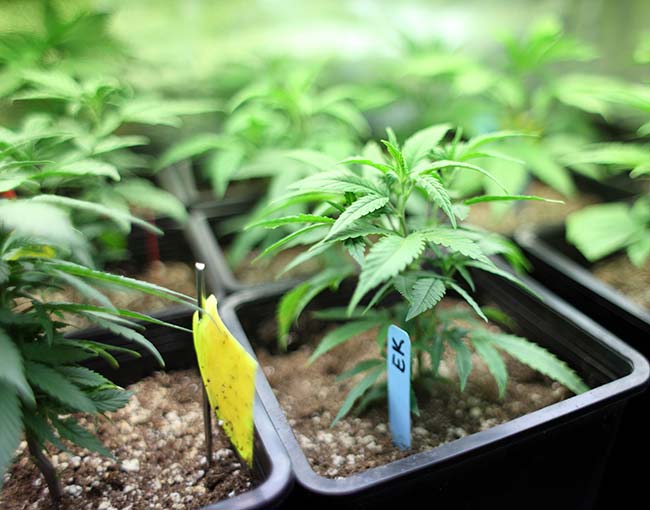As far back as 2011, elected officials have sent letters to the U.S. Drug Enforcement Administration urging it to reclassify cannabis by removing it from the list of Schedule I controlled substances. After promising a response in the “second half of 2016,” the DEA released a series of documents on Aug. 11, 2016 that refused to reclassify cannabis but opened doors to the development of cannabis-based products.
Underpinning the announcement was the clear message that until the FDA is presented with significant, clinical evidence of cannabis’ effectiveness in treating diseases or conditions, supplied by approved drug trials, the DEA will not change the Schedule I status of cannabis. Although the decision was not the news the industry hoped for, it did open the door to real changes in the way that the cannabis industry can leverage medical applications of cannabis.
The DEA drug classification system
Pursuant to the authority in 21 U.S.C. §801 et seq, the DEA maintains a list of controlled substances, each of which are classed on a schedule with Schedule V being the group of drugs that require the least restrictive controls. There are a total of five different schedules. These schedules apply increasing levels of control and limitations on each substance listed thereon but in a descending order. For example, Schedule I drugs are those that have been found to have “no currently accepted medical use and a high potential for abuse. Schedule I drugs are the most dangerous drugs of all the drug schedules with potentially severe psychological or physical dependence.” The schedule status of a drug is based on the available scientific data regarding the safety of the compound, the risk of abuse, and available medical benefit the substance provides. Cannabis, as a Schedule I drug, has therefore historically had, at the federal level, experienced the greatest number of limitations and controls.
With the emergence of the cannabis industry and its growth, there has been a true grassroots effort to deschedule cannabis. A wide group of advocates, including elected officials, have sent letters to the DEA asking that the current scheduling of cannabis be changed. One such official, Sen. Elizabeth Warren of Massachusetts, sent a letter, to the DEA emphasizing the importance of continued research with cannabis as further support to lift the Class I scheduling limitations. Specifically, the letter noted:
Currently, twenty-three states and the District of Columbia have passed laws allowing for medical marijuana use, and an additional fifteen states have laws specifically allowing access to cannabidiol (CBD). While the federal government has emphasized research on the potential harms associated with the use of marijuana, there is still very limited research on the potential health benefits of marijuana – despite the fact that millions of Americans are now eligible by state law to use the drug for medical purposes.
This language, among other statements in Sen. Warren’s letter, was clearly echoed in the DEA’s pronouncement.
The DEA’s decision to not reclassify or deschedule cannabis
The DEA’s decision not to change the Schedule I status of cannabis consisted of a letter from the DEA to the senators, as well as two filings (1 and 2) to the Federal Register. The letter makes clear that these decisions are focused on enabling the FDA to perform its function in ensuring that any new drugs are subjected to rigorous clinical testing and scientific analysis to ensure that any drug product available to U.S. consumers is safe and effective for its intended use. The DEA’s letter raises the FDA’s role moving forward, specifically:
The FDA drug approval process for evaluating potential medicines has worked effectively in this country for more than 50 years. It is a thorough, deliberate, and exacting process grounded in science, and properly so, because the safety of our citizens relies on it. Using established scientific standards that are consistent with that same FDA drug approval process and based on the FDA’s scientific and medical evaluation, as well as the legal standards in the CSA, marijuana will remain a Schedule I controlled substance. It does not have a currently accepted medical use in treatment in the United States, there is a lack of accepted safety for its use under medical supervision, and it has a high potential for abuse.
As part of this review, the DEA obtained from the FDA an unpublished lengthy report on the status of cannabis science as it relates to human health. This review emphasized the standards by which a new drug can gain approval. This includes:
- The drug’s chemistry must be known and reproducible
- There must be adequate safety studies
- There must be adequate, well-controlled studies showing efficacy
- The drug must be accepted by qualified experts
- The scientific evidence for the safety and efficacy of the drug must be widely available
In recommending that cannabis not be descheduled, the FDA identified multiple known health issues related to cannabis use, including prenatal exposure, behavioral effects, deleterious impact on those prone to psychoses, and negative impacts on a patient’s cardiovascular, endocrine, respiratory, and immune systems. In addition, given the inconsistent quality and limited amount of controlled cannabis research, and lack of NDAs or INDAs, the FDA concluded that the current evidence did not support the rescheduling of cannabis.
In essence, in its statement, the DEA adopted the FDA’s opinion, stating that while the use of cannabis for treating a variety of conditions has seen approval at the state level, the federal government has yet to see sufficient scientific clinical evidence of safety and efficacy to warrant the reclassification of cannabis. The DEA’s letter ends with the statement, “But we will remain tethered to science, as we must, and as the statute demands.”
One door closes, another opens
While this is not the decision that the cannabis industry was looking for, when Sen. Warren’s letter was first published, the letter and its attached materials outline current efforts by the DEA to enable research on cannabis and its components. For example, last year, the DEA waived certain regulatory requirements for researchers investigating cannabidiol (CBD). To date, all petitions from researchers under these changes have been granted.
Prior to the August decision of the DEA, only one institution, the University of Mississippi, had been granted a license for the cultivation of marijuana for research purposes. Until the DEA’s recent announcement, researchers looking to obtain cannabis product for research could only go through this single NIDA source. The reasoning for this single license lies with a very dated international treaty. Under the 1961 International Single Convention on Narcotic Drugs (an international treaty later amended in 1972), cannabis was designated a Schedule I substance and participating countries are required to restrict production, manufacture, possession and distribution of marijuana except for medical and scientific purposes. The DEA regulates the cultivation of marijuana for research purposes through licensing requirements and establishing annual aggregate production quotas under the authority of the 1970 Controlled Substances Act (CSA), which implements the Single Convention. The DEA will now begin the process of reviewing applications in order to approve additional manufacturers and suppliers of cannabis for research purposes.
This represents a real opportunity for the industry. Historically, NIDA supply of research cannabis has not been consistent, and represents only a single, limited source of limited variety. With the introduction of new NIDA sources of cannabis, industry members should have more ready access to a greater variety of cannabis strains and products made from them. This should provide the industry with the supply necessary to allow for more sophisticated, focused research the likes of which the DEA and the FDA call for in the opinion documents.
More importantly, this move by the DEA to consider additional licenses for cultivation, shows movement on the part of at least one federal agency to make cannabis more available through additional licenses so the medical use of cannabis can be more widely researched.
However, the announcement also tells us that until the FDA changes its position on the merits of cannabis for medical use, other agencies such as the DEA are stymied. Although the DEA announcement does demonstrate a willingness to create a bigger platform for research, it cannot move any further until the FDA revises its position. In the meantime, the Department of Justice order to not engage in enforcement activities in those states where cannabis has been legalized remains in place. So, the tension created by the opposing positions of the states where cannabis has been legalized and the federal position on cannabis continues with a new twist opening the door to more research on the benefits of its use. The cannabis industry would be wise to continue its efforts to substantiate the medical benefits of cannabis through this new expanded research access, which may be the key to getting the FDA to revise its stance.
At Thompson Coburn, we have a team of attorneys with experience not just in the cannabis industry, but with FDA-required research, testing and drug approvals. If you have any questions with regard to this article, the drug approval process, or cannabis generally, please contact us.
















